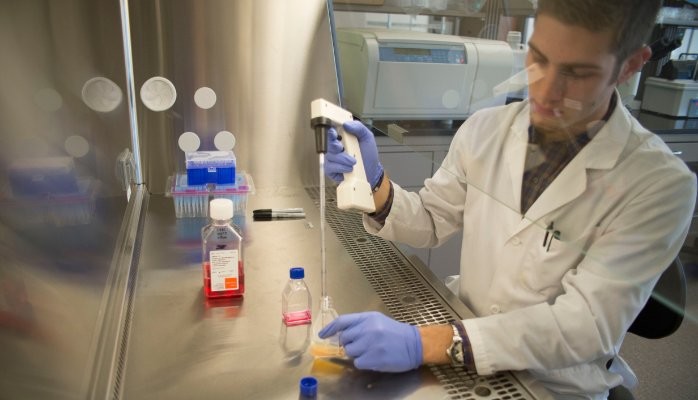Determining whether biology is easier than chemistry is subjective and depends on individual preferences and strengths. Biology often involves tangible phenomena and relatable concepts, such as the study of living organisms and their interactions. This can make it seem more accessible to some students.
However, biology also requires memorization of terminology and complex processes, especially in areas like genetics and molecular biology. On the other hand, chemistry deals with the composition and behavior of matter, which can be abstract and challenging for some learners.
While both subjects have their complexities, the perceived difficulty may vary based on personal interests and aptitudes. Ultimately, the ease of understanding biology versus chemistry is a matter of individual perspective and learning style.
Understanding Biology

Understanding biology involves delving into the intricate mechanisms of life and its myriad forms. It encompasses the scientific exploration of living organisms and their interactions with the environment. At its core, biology seeks to unravel the mysteries of life by studying its fundamental principles, from the molecular level to ecosystems.
In biology, researchers explore the fascinating realm of cellular structures, investigating the intricacies of DNA, RNA, proteins, and other biomolecules. This molecular perspective provides insights into the mechanisms that drive life processes, such as metabolism, reproduction, and response to stimuli.
Evolutionary theory serves as a foundational concept in biology, explaining how species evolve and adapt over time. Through the process of natural selection, organisms acquire traits that enhance their survival and reproductive success, shaping the diversity of life on Earth.
Genetics plays a pivotal role in understanding biological inheritance and variation. The study of genes and their transmission from one generation to the next elucidates the mechanisms underlying genetic disorders, hereditary traits, and population genetics.
Biology extends beyond the confines of individual organisms to encompass broader ecological interactions. Ecologists investigate the dynamics of ecosystems, studying the relationships between organisms and their environment. This includes examining energy flow, nutrient cycling, and the distribution of species across different habitats.
Understanding Chemistry

Understanding chemistry is key to comprehending the composition, properties, and transformations of matter. It is a branch of science that explores the structure of atoms, the interactions between different substances, and the underlying principles governing chemical reactions. Here’s an overview:
Chemistry investigates the building blocks of matter, starting with atoms and molecules. Atoms are the basic units of chemical elements, each characterized by a unique arrangement of protons, neutrons, and electrons. Molecules, on the other hand, are formed when atoms combine through chemical bonds, resulting in a variety of compounds with distinct properties.
One of the fundamental concepts in chemistry is the periodic table of elements, which organizes elements based on their atomic number, electron configuration, and chemical properties. This table serves as a roadmap for understanding the relationships between different elements and predicting their behavior in chemical reactions.
Chemical reactions lie at the heart of chemistry, representing the transformation of reactants into products through the breaking and forming of chemical bonds. These reactions can be classified into various types, including synthesis, decomposition, acid-base, oxidation-reduction, and precipitation reactions. Understanding the mechanisms and kinetics of these reactions enables chemists to design new materials, develop pharmaceuticals, and address environmental challenges.
Thermodynamics and kinetics are two branches of chemistry that govern the energy changes and reaction rates associated with chemical processes. Thermodynamics deals with the study of heat and energy transfer in chemical systems, while kinetics focuses on the factors that influence the speed of chemical reactions. These principles provide valuable insights into the feasibility and efficiency of chemical transformations.
Analytical chemistry plays a crucial role in identifying and quantifying the composition of substances, utilizing techniques such as spectroscopy, chromatography, and mass spectrometry. This branch of chemistry enables scientists to analyze complex mixtures, determine the purity of compounds, and monitor chemical processes with precision.
Organic chemistry focuses on the study of carbon-containing compounds, which form the basis of life on Earth. It encompasses the synthesis, structure, and reactions of organic molecules, including those found in drugs, polymers, and natural products. Organic chemistry plays a central role in fields such as pharmaceuticals, materials science, and biochemistry.
Comparative Analysis between biology and chemistry
Comparative analysis is a method used in various fields to compare two or more entities to identify similarities and differences between them. In the context of understanding biology and chemistry, a comparative analysis can shed light on the unique characteristics, challenges, and advantages of each discipline. Here’s an overview of how such an analysis might unfold:
Subject Matter and Scope
Biology focuses on the study of living organisms, ranging from single-celled microorganisms to complex multicellular organisms and ecosystems. It explores topics such as genetics, evolution, ecology, physiology, and cell biology.
On the other hand, chemistry delves into the composition, structure, properties, and transformations of matter. It encompasses the study of atoms, molecules, chemical reactions, and the principles governing chemical systems.
Nature of Concepts
Biology often deals with tangible and observable phenomena, such as the anatomy and behavior of organisms, ecological interactions, and genetic traits. Concepts in biology are often descriptive and rely on empirical evidence from experiments and observations.
Chemistry involves both tangible and abstract concepts. While some aspects of chemistry, such as chemical reactions and properties of substances, can be observed and measured directly, others, such as atomic and molecular structures, require abstract models and theoretical frameworks for understanding.
Complexity of Concepts
Biology encompasses a wide range of topics, from the molecular mechanisms of cellular processes to the interactions between organisms and their environments. Some concepts in biology, such as the molecular basis of genetics or the mechanisms of evolution, can be highly complex and require a deep understanding of multiple disciplines.
Chemistry also presents its share of complex concepts, particularly in areas such as quantum mechanics, thermodynamics, and chemical kinetics. Understanding the behavior of atoms and molecules, predicting chemical reactions, and interpreting experimental data can pose significant challenges for students and researchers alike.
Interdisciplinary Nature
Both biology and chemistry are interdisciplinary fields that intersect with other scientific disciplines. Biology often draws upon principles from chemistry, physics, mathematics, and even computer science to understand the mechanisms of life.
Similarly, chemistry interfaces with biology in fields such as biochemistry, pharmacology, and materials science, where chemical principles are applied to biological systems.
Applications and Relevance
Biology has diverse applications in fields such as medicine, agriculture, biotechnology, environmental science, and conservation biology. It addresses pressing issues such as disease prevention and treatment, food security, biodiversity conservation, and ecosystem management.
Chemistry plays a critical role in numerous industries, including pharmaceuticals, materials science, energy production, environmental remediation, and nanotechnology. It underpins innovations in areas such as drug discovery, renewable energy technologies, pollution control, and advanced materials development.
Pros and Cons of Studying Biology

Studying biology opens up a fascinating world of living organisms and their interactions. Here are some pros and cons to consider
Pros
Fascinating Field: Biology unlocks the secrets of life, from the tiniest organisms to complex ecosystems. It’s a constantly evolving field with new discoveries being made all the time.
Strong Job Market: Biology opens doors to a wide range of careers in healthcare, research, biotechnology, environmental science, and more. The job outlook for biology majors is generally positive.
Valuable Skills Development: Studying biology improves critical thinking, problem-solving, analytical, and research skills. These skills are highly transferable and beneficial in many professions.
Lifelong Learning: Biology fosters a curiosity about the natural world and encourages lifelong learning. You’ll gain a deeper appreciation for the complexities of life and the environment.
Broad Specialization: Biology offers numerous specializations, allowing you to tailor your studies to your interests, such as genetics, ecology, marine biology, or microbiology.
Cons
Challenging Coursework: Biology can be demanding, with a lot of information to memorize, complex concepts to grasp, and lab work requiring attention to detail.
Competitive Field: Many biology careers require advanced degrees, and the job market can be competitive, especially for some specializations.
Dissections and Labs: Dissections and lab experiments involving animals or microorganisms might be uncomfortable for some students.
Salary Considerations: Salaries for some biology careers can be lower than those in other STEM fields, especially at entry-level positions.
Time Commitment: Succeeding in biology often requires dedication and significant time investment, especially in lab courses and research projects.
Pros and Cons of Studying Chemistry

Here are some pros and cons of studying chemistry:
Pros
Applicable Everywhere: Chemistry underpins many aspects of the world around us, from materials science and medicine to food science and environmental issues. Understanding chemistry offers a deeper perspective on various fields.
Problem-Solving Skills: Chemistry emphasizes critical thinking and problem-solving through analyzing reactions, balancing equations, and applying logic to experiments. These skills are highly sought after in many careers.
Transferable Skills: Studying chemistry develops valuable research, analytical, and quantitative reasoning skills that are transferable to various professions, even outside science.
Lucrative Career Paths: Chemists have a good job outlook with competitive salaries. There’s a high demand for skilled chemists in various industries, including pharmaceuticals, material science, and energy.
Constant Discovery: Chemistry is a dynamic field with ongoing research and discoveries. Studying chemistry allows you to be part of this exciting journey of scientific exploration.
Cons
Math Intensive: Chemistry builds upon a strong foundation in math. Understanding concepts like algebra and trigonometry is crucial for solving equations and interpreting data. Students struggling with math might find chemistry challenging.
Abstract Concepts: Some chemical concepts, such as quantum mechanics and atomic structure, can be abstract and difficult to grasp. Mastering these concepts requires strong visualization and problem-solving skills.
Safety Concerns: Laboratory work is an essential part of chemistry. Working with chemicals requires strict adherence to safety protocols, which can be demanding and raise concerns for some students.
Potentially Repetitive: While there’s ongoing discovery, some aspects of introductory chemistry can feel repetitive, involving balancing equations and memorizing element properties.
Time Commitment: Laboratory experiments and problem sets can be time-consuming. Succeeding in chemistry often requires a significant time investment and dedicated practice.
FAQ’s
Which is easier, chemistry or biology?
Biology often involves more memorization of facts and understanding relationships between concepts, focusing on living organisms, cells, genetics, and ecosystems. If you have a keen interest in life sciences, you may find Biology more enjoyable and easier to grasp.
Is it better to take biology or chemistry?
The decision ultimately depends on your interests and what you wish to focus on in your studies. Both chemistry and biology offer ample opportunities to learn complex systems, conduct experiments, analyze data, and delve into the intricacies of the natural world. Choose based on your passions and career aspirations.
Final Words
So, in short, whether biology is easier than chemistry depends on what clicks best for you. Biology has cool stuff like plants and animals, which can be fun to learn about.
But it also has tricky bits, like remembering lots of names and complicated processes. Chemistry deals with how things are made up and how they change, which can be a bit abstract.
Both have their challenges, but it’s like choosing between apples and oranges – it depends on your taste! Just remember, whichever you choose, there’s a whole world of discovery waiting for you.
